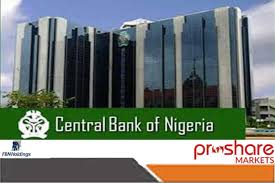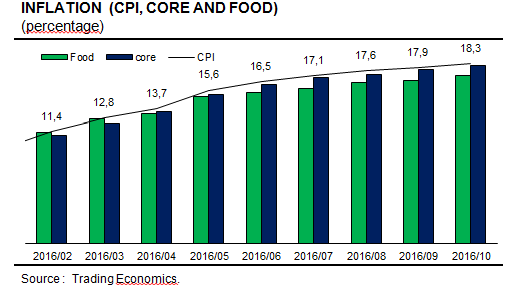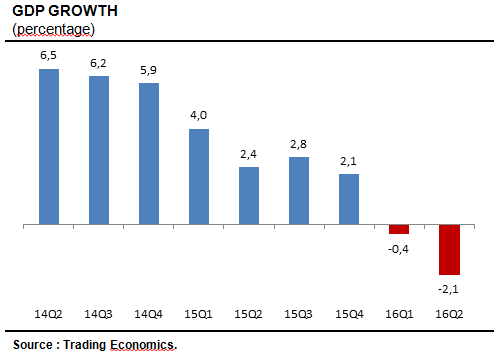NIGERIA : THE CENTRAL BANK’S DILEMMA FACING THE HIGHEST INFLATION SINCE OCTOBER 2005

According to a report from the National Statistical Bureau, the #Nigeria headline inflation surge up to 18,3 % year on year in october from 17,9 % in september. The increase of headline inflation reflected increase in both food and core components of inflation.
The core inflation rose to 18,1 % year to year in october from 8,8 % in january 2016. It averaged averaged 9,8 % from 2007 until 2016, reaching an all time high of 19,3 % in january 2007. The highest increases were recorded in the subgroups of housing, water, electricity and fuels. Food inflation rose to 17,1 % in october from 16,6 in september and 10,6 % in january 2016.
Negative economic growth environment
High inflation is weighing on growth by dampening consumption and investment.
The GDP shrank by 2,06 % year to year in the second quarter of 2016 compared to a 0,36 % drop in the first quarter. It was the first economic contraction in 20 years due to a decline in oil prices.
The Central Bank under considerable pressure
The Central Bank of Nigeria prioritises price stability despite the negative economic growth. In July, the central bank of Nigeria decided to raise its monetary policy rate by 200 basis points to 14 %. The new inflation statistics of october put big pressure on the central bank.
Will the central bank move next to further tighten its monetary policy?

